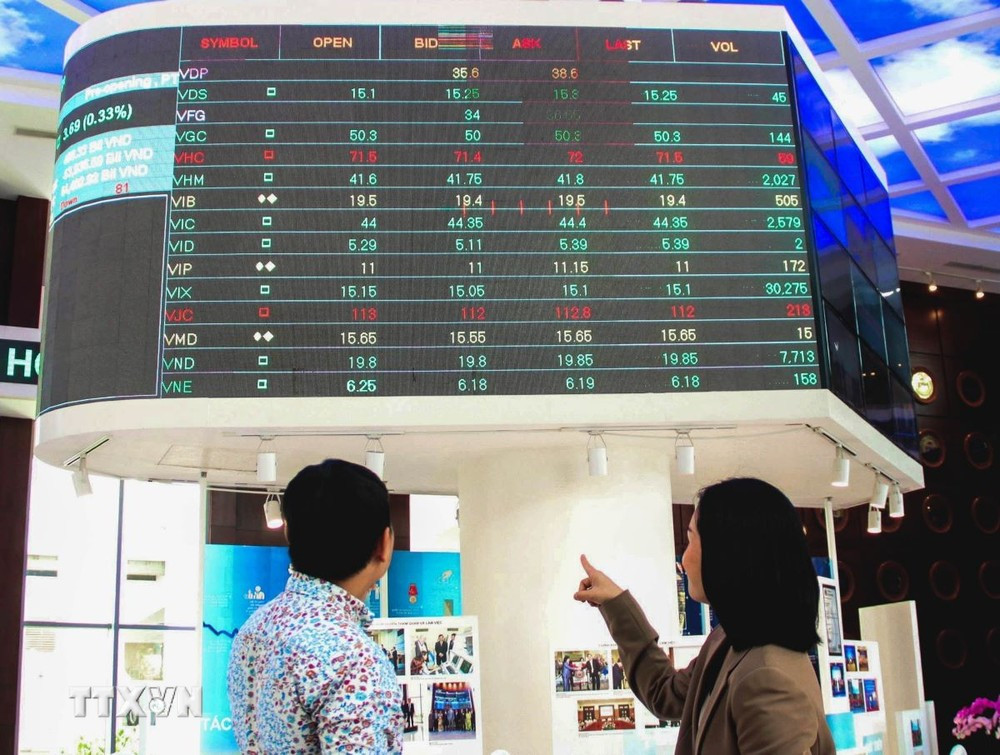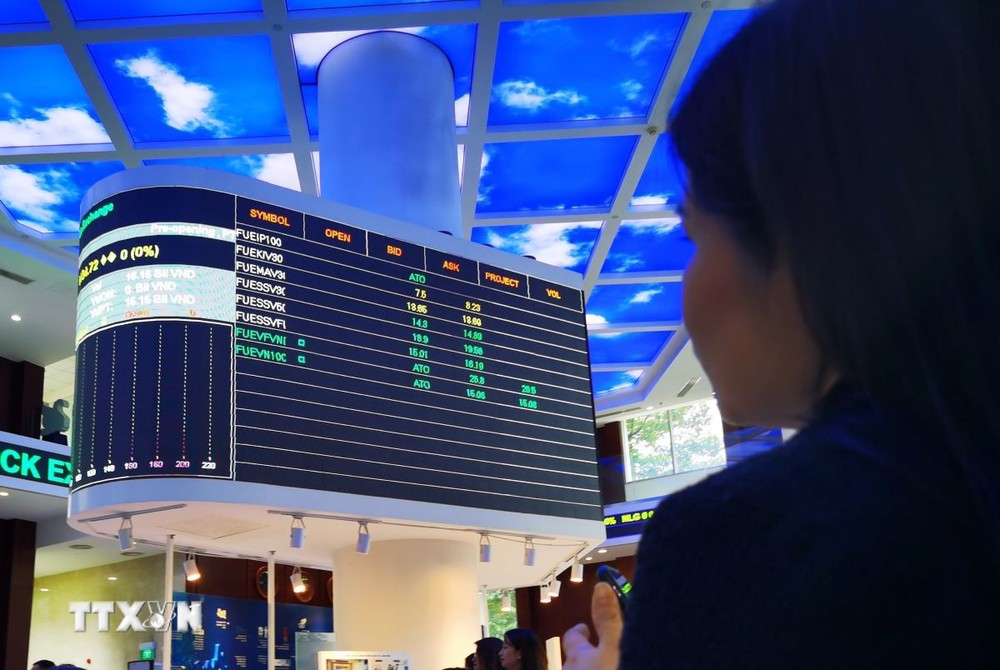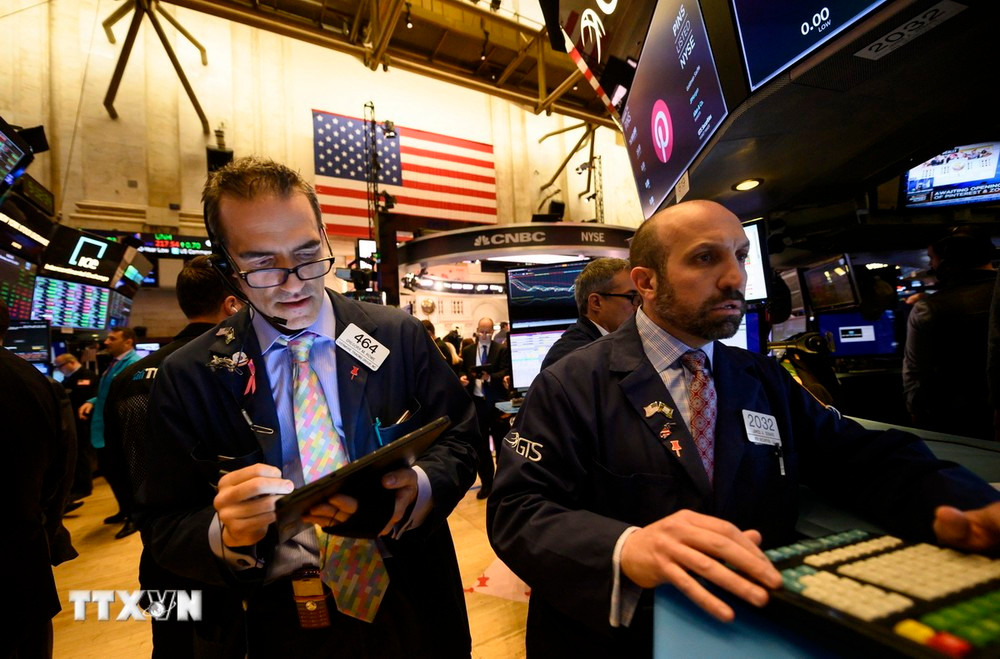After a strong net selling of up to 60,000 billion VND since the beginning of the year, foreign investors have reversed to net buying in the first two sessions of August.

After a strong net selling of up to 60,000 billion VND since the beginning of the year, foreign investors have reversed their net buying in the first two sessions of August. Foreign investors returned to net buying in the context of the stock market experiencing a "stormy" trading week.
Assessing the return of foreign net buying in two consecutive sessions last week, Vietnam Construction Securities Joint Stock Company (CSI) considered this a notable positive point, possibly a signal of a new cycle of foreign net buying after a period of strong net selling.
In fact, the stock market fluctuated strongly during the trading week between July and August (from July 29 to August 2), when the last 3 sessions of July continued to recover to the price range of 1,255 points, then suddenly suffered from very sudden selling pressure in the first trading session of August 2024.
At the end of the week, VN-Index continued to adjust to the price range of 1,200 - 1,211 points (a strong psychological support zone, the highest price range in 2018, as well as the current 1-year and 5-year average prices) before recovering.
At the end of the trading week, VN-Index decreased by 0.44% compared to the previous week to 1,236.6 points, below the resistance zone of 1,245 - 1,255 points (the highest level in 2023). Meanwhile, VN30-Index decreased slightly by 0.06% to 1,281.01 points, remaining above the highest price zone in 2023, corresponding to 1,260 - 1,268 points. HNX-Index ended the trading week at 231.56 points, down 2.15% compared to the end of last week.
Liquidity on both exchanges this week improved compared to the previous trading week when matched volume increased by 8.95% at HOSE and 18.9% at HNX.
The industry group that actively contributed to the market's increase this week was food and beverage, typically VNM code increased by 8.66%.
Oil and gas stocks increased positively due to tensions in the Middle East between Iran and Israel with green coming from OIL stocks increasing by 2.76%, BSR increasing by 1.82%, PVC increasing by 0.72%...
The banking group actively contributed to the score with VCB increasing by 1.6%, VPB increasing by 1.9%, SSB increasing by 2.96%, BID increasing by 3.24%, TCB increasing by 3.3%, NAB increasing by 5.9%...
This week, some other industries witnessed many stocks decrease such as telecommunications with VGI down 11.69%, MFS down 6.67, TTN down 6.59%, ABC down 4.48%...
Although the securities industry group had a recovery session at the end of the week, the whole week decreased sharply, with SSI down 2.65%, VND down 3.17%, VCI down 3.66%, HCM down 3.35%, MBS down 4.52%...
Most chemical and fertilizer stocks had a week of declining trading, specifically DGC down 5.39%, DDV down 3.31%, DPM down 0.85%...
Steel stocks performed poorly with the news of the EU's anti-dumping investigation. Specifically, HPG shares decreased by 0.73%, NKG decreased by 6.64%, HSG decreased by 7.34%, TLH decreased by 14.23%, SMC decreased by 18.28%...
Information from the Department of Trade Remedies, Ministry of Industry and Trade, on July 30, 2024, the Department of Trade Remedies received information that the European Commission (EC) had received a complete and valid dossier requesting an investigation to apply anti-dumping measures on non-alloy or alloy hot-rolled steel coil products imported from Vietnam.
Returning to market developments, Vingroup stocks last week had a mixed performance with VHM down 4.64%, VRE down 6.99%, but VIC up 0.96% with information announcing the price of VF3 batteries and VinFast car models.
Experts from Saigon-Hanoi Securities Joint Stock Company (SHS) said that the short-term trend of VN-Index is still negative after the unsuccessful recovery to retest the resistance zone around 1,255 points, corresponding to the highest price zone of the year, as well as the short-term and medium-term trend line connecting the lowest price zones of November 2023, April 2024 and July 2024, leading to strong selling pressure.
Currently, the strong resistance zone of VN-Index is 1,255 points and the support is the lowest price of 1,218.7 points on July 24, 2024.

In the last 2 trading sessions, VN-Index adjusted to 1,209 points and recovered above the lowest price on July 24, 2024, with many stocks suffering from strong selling pressure and recovering well, especially stocks with good fundamentals and good growth in Q2 business results, showing many short-term shedding properties for speculative positions, high leverage... and opening up many positions to accumulate good quality stocks.
Experts from Vietnam Construction Securities Joint Stock Company (CSI) recommend that selling pressure is still dominant, so the company continues to maintain a cautious stance, investors should temporarily not open new buying positions or increase the proportion of stocks in the portfolio. Instead, they need to patiently wait for clearer positive signals. In the downward trend, CSI expects the 1,195-point threshold to continue to be an important support level for the VN-Index next week.
In fact, the Vietnamese stock market also "moves" according to the developments of the world stock market.
August is typically one of the weakest months of the year for equity trading, according to economists and market experts. With tensions in the Middle East looming and no major central banks responding with much in the way of easing, the outlook for global equity markets in the coming weeks is bleak.
Looking back at the week's trading, world stock markets continued to move in opposite directions, mainly due to reactions to information related to the health of the US economy and policy moves by major central banks.
After moving sideways in the first two sessions of the week, Wall Street turned green on news that the US Federal Reserve (Fed) decided to keep interest rates unchanged. Trading in Asian stock markets followed the same path as the US stock market. However, the situation reversed in the last two days of the week due to concerns about the US economy slowing down and the BoJ raising interest rates.
Closing the week from July 29 to August 2, the MSCI stock index of the Asia-Pacific region (excluding Japan) decreased by 2.26% to 785.26 points.
On Wall Street, the Nasdaq Composite technology index fell 3.26% to 16,633.36 points. Compared to the peak in July 2024, this index has now decreased by a total of nearly 11%. Meanwhile, the Dow Jones industrial average lost 1.41% to 39,778.04 points and the S&P 500 index lost 2.19% to 5,327.24 points.
In Europe, the pan-European STOXX 600 index lost nearly 3%, while the FTSEurofirst 300 index fell 2.44%.
Surprisingly low US employment data released on August 2 raised concerns about the risk of an economic recession, causing investors to sell stocks and move into bonds - a safer asset class. As a result, US Treasury yields fell to multi-month lows in the trading session on the same day, the US dollar fell and gold rose.
The VIX, widely seen as Wall Street’s fear gauge, spiked. Technology stocks bore the brunt of the market’s declines, and the European banking index posted its biggest weekly drop in 17 months, reflecting a slew of weak earnings reports from the bloc’s corporate community.

The unemployment rate in the world's largest economy rose to a near three-year high in July as hiring slowed sharply, raising concerns that the labor market was deteriorating and could push the economy into recession, according to a report released by the US Department of Labor on August 2.
Specifically, the number of non-farm jobs in the US last month added 114,000 new jobs, down from 179,000 new jobs in June 2024. In the previous week (July 22-26), the number of Americans filing new unemployment claims rose to an 11-month high.
The weak data has raised expectations that the Fed will soon cut interest rates more than once this year.
The weak jobs data reinforces the view that the Fed has gone off track on monetary policy by not cutting interest rates at its July 2024 meeting, said Jamie Cox, managing partner at Harris Financial Group in Richmond, Virginia. He added that it is likely that US monetary policy makers will change their minds and move towards a rate cut in September. The expected cut is 0.25 percentage points.
Affected by negative economic news from the world's largest economy, Asian stock markets also witnessed a "red" weekend trading session.
MSCI's broadest index of Asia-Pacific shares outside Japan closed 2.33% lower at 554.61 points, while Japan's Nikkei 225 lost 2,216.63 points, or 5.81%, to 35,909.70.
Compared to other popular stock indexes in Asia-Pacific, in the trading session on August 2, Nikkei 225 led the decline, losing a total of 5%, reaching an 8-month low. The reason is that this index is strongly affected by the appreciation of the yen and the expectation that the Bank of Japan (BoJ) will continue to raise interest rates in the near future.
VN (according to VNA)